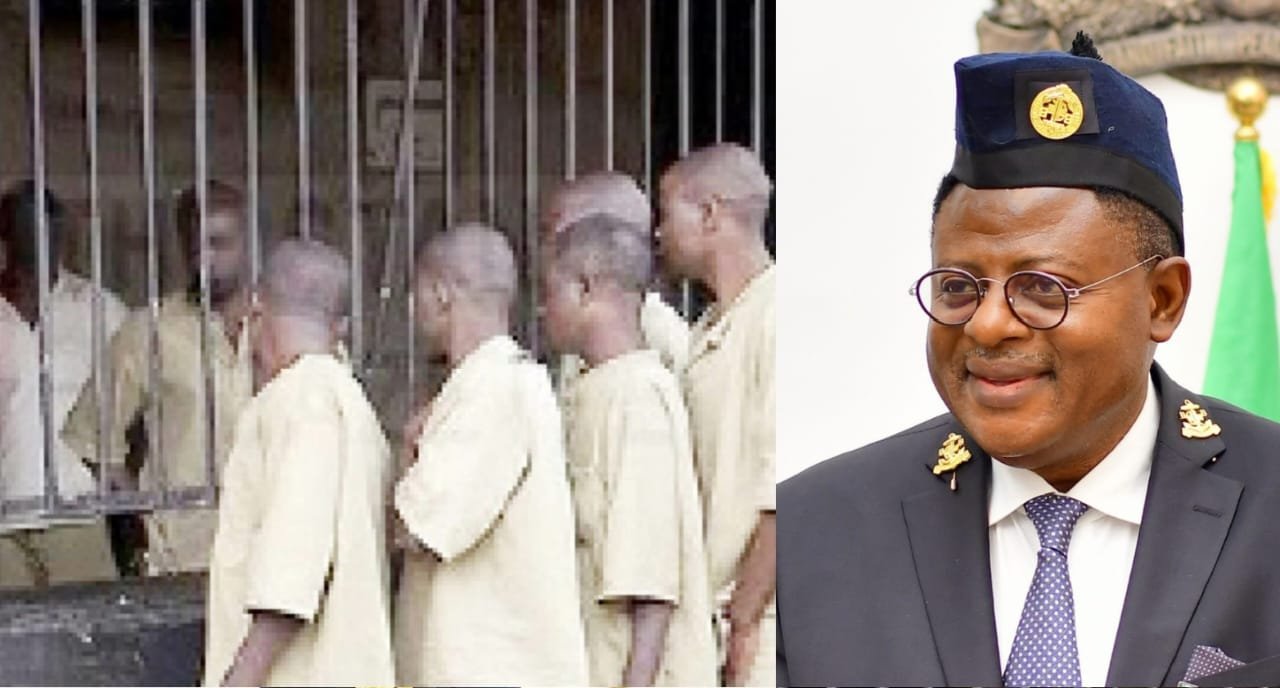By Frank Ulom
CALABAR (CONVERSEER) – Since assuming office on 29th May 2023, Cross River State Governor, Senator Bassey Otu, is yet to execute inmates condemned to death by the court of law, over two years into his four-year term.
The Secretary of the Administration of Criminal Justice Monitoring Committee in the State, Barr. James Ibor, has attributed the prolonged delay in executing inmates on death row to human rights concerns and constitutional challenges.
According to Leadership, Ibor revealed that Cross River has for years adopted Amnesty International’s policy against the execution of condemned inmates, a stance supported by successive governors of the state.
“Thankfully, all the governors of Cross River State subscribed to that policy. Again, with the state of our scientific development, the government gives room for error. What happens when somebody who had been condemned based on facts that turn out to be incorrect?” he questioned.
Speaking further, Ibor argued that it is safer and more humane to allow condemned inmates to serve life sentences, as new evidence could emerge that might exonerate them. According to him, compensating a wrongly imprisoned individual is possible, but irreversible if execution has already taken place.
“Research has shown consistently that the death penalty is not a deterrent. Once you execute a convict, just because a convict had been sentenced to death, it is difficult to reverse the execution when new facts emerge that exonerate the person from the crime,” he added.
Adding to the discourse, the Special Adviser to the Governor on Legal Matters, Barr. Ekpeyong Akiba, highlighted that the fear of executing innocent persons remains one of the strongest deterrents to carrying out death sentences. He said the government is also constrained by its alignment with civil society groups and international organisations that oppose capital punishment.
Akiba also identified a less-discussed but significant challenge—the lack of qualified executioners.
“When criminals are sentenced to death, the government sometimes finds it difficult because it lacks hangmen who ensure that those condemned by the law go through the process. Even in Nigeria, I do not know if we have hangmen.
“It’s difficult to hire a hangman outside the country. The executors, whom we call hangmen, are difficult to come by,” he stated.
Efforts to get a response from the Attorney General and Commissioner for Justice in Cross River State proved abortive, as calls and messages sent to him were not returned.
A visit to the Nigerian Correctional Service (NCoS) headquarters in Calabar yielded no concrete details, as the State Controller, Mr Richard Moses Williams, declined to disclose the current number of death row inmates in the state.
Nationally, Nigeria is grappling with a growing backlog of death row inmates. According to recent findings by Leadership Weekend, the number of inmates on death row has surged to 3,823 as of June 2025. These inmates, though condemned, remain in indefinite limbo—neither executed nor released—posing legal, ethical and financial concerns.
Of the 3,823 condemned inmates, 3,742 are male and 81 are female, a sharp increase from 3,688 in March and 3,590 in September 2024. Despite the constitutional authority vested in state governors to approve executions or commute sentences, such decisions are rarely made.
This inaction has compounded the strain on Nigeria’s already overburdened correctional facilities. The federal government spends approximately ₦4.3 million daily to feed death row inmates alone. Broader figures show that the Nigerian Correctional Service spends around ₦58.8 million daily to feed the entire inmate population of 78,446.
Until August 2024, each inmate was allocated ₦750 daily for meals, a figure considered inadequate by many rights groups. Following nationwide outcry, President Bola Tinubu approved an upward review to ₦1,125 for awaiting-trial inmates. However, prison experts say this still falls short of the ₦1,346 benchmark needed for a healthy diet, resulting in a daily shortfall of ₦221 per inmate.
Between January and February 2025 alone, the NCoS spent ₦3.3 billion to feed 50,000 awaiting-trial inmates, projecting an annual expenditure of ₦20.6 billion. For 2025, the service allocated ₦38 billion for food supplies—death row inmates included—though their exact share was not specified.
With no hangmen available, increasing ethical concerns, and spiralling costs, Nigeria’s death penalty system appears to be stuck in a complex legal and moral dilemma.










